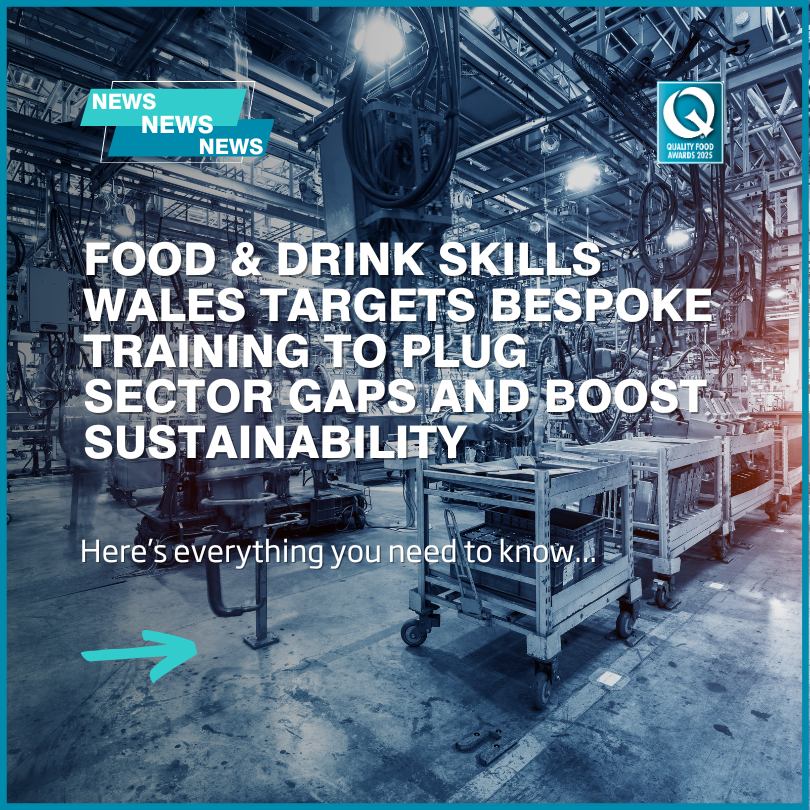
Food & Drink Skills Wales targets bespoke training to plug sector gaps and boost sustainability
Welsh Government-funded Food & Drink Skills Wales is offering tailored diagnostics, workforce development managers and funded training to help processing and manufacturing firms tackle skills shortfalls, accelerate decarbonisation and support business growth — while early case studies point to improved staff confidence and career pathways.
Sgiliau Bwyd a Diod Cymru — operating in English as Food & Drink Skills Wales — is positioning itself as a practical response to long-standing skills gaps in the nation’s food and drink sector. According to the programme and its public materials, the Welsh Government-funded initiative works with processing and manufacturing businesses across Wales to help them identify skills shortfalls and access targeted training and funding. The programme documents say the aim is to raise workforce capability while helping firms tackle technical, business and environmental challenges.
Training delivered under the programme is pitched at areas industry leaders and officials now regard as mission-critical. Core themes named in programme materials and partner guidance include sustainability and decarbonisation, innovation, leadership and management, production and manufacturing skills, and digital transformation — alongside marketing, sales and compliance support tailored to individual firms. Officials stress that courses are not generic: many interventions are described as bespoke or business-led to reflect different stages of company growth and differing commercial priorities.
Delivery is routed through a combination of skills diagnostics, dedicated Workforce Development Managers and a training directory with funded routes, according to the organisations running the initiative. Mentera, the contractor charged with delivery, outlines a process in which an employer registers, completes a diagnostic to identify gaps, and then works with a development manager to access funded training, apprenticeships or bespoke interventions. Business Wales guidance mirrors this model, emphasising practical support and clear funding pathways for eligible companies.
Those running the programme say take-up has been encouraging. “We’ve been encouraged by the enthusiasm from businesses across Wales who are embracing upskilling as a strategic priority,” Kate Rees, programme manager for Food & Drink Skills Wales, told the South Wales Argus. Rees has also written in a guest column that the programme listens to producers to shape practical, tailored packages — from technical upskilling to management development — intended to raise productivity and support sustainable growth.
Proponents argue the benefits are both operational and cultural. Programme literature and commentary from delivery partners highlight improved staff confidence, greater workplace flexibility and clearer routes for career progression — outcomes that officials say help firms innovate and become more resilient to market and regulatory change. Youth engagement and apprenticeship pathways are also emphasised as ways to secure a longer-term pipeline of trained workers for Wales’s food and drink firms.
The claim is borne out, supporters say, by firm-level stories. Edwards, The Welsh Butcher of Conwy, is cited as an example of how workforce investment can accompany business expansion. The company, which began as a single local shop and has grown over roughly four decades into a national brand with significant processing operations, listings with supermarkets and export activity, now employs about eighty-five staff, according to a sector case study. “There’s huge potential in the Welsh food and drink industry, especially for people who are curious, adaptable, and eager to grow,” said Ieuan Edwards, master butcher and director, in an interview with the South Wales Argus.
Officials and delivery partners frame the programme as a lever for productivity and innovation across the supply chain. Mentera and government-facing guidance say the interventions are intended to help firms modernise production, meet environmental targets and develop new routes to market — objectives that are increasingly salient for companies facing tighter sustainability rules and shifting consumer demand.
For employers interested in the offer, public pages for the initiative explain the basic steps: check eligibility (processing and manufacturing businesses are prioritised), register for a skills diagnostic, and work with a Workforce Development Manager to identify funded or subsidised training routes. The programme materials and Business Wales advice make clear this is a Welsh Government-funded scheme, and describe how firms can access the training directory and apply for support through recognised channels.
The programme’s backers present these interventions as practical and tailored. As with any government-funded initiative, the claims about impact and reach are those of the programme and its delivery partners; independent evaluation and longer-term outcome data will be needed to assess whether the approach delivers sustained productivity and job-quality gains across the sector. In the meantime, organisers point to early business case studies and employer feedback as evidence that targeted upskilling can play a part in helping Wales’s food and drink industry adapt and grow.
